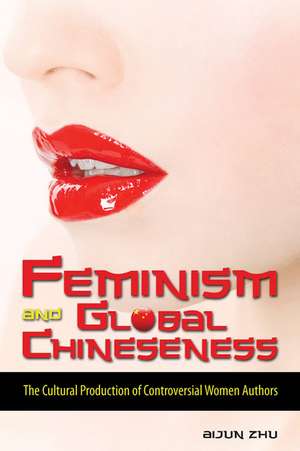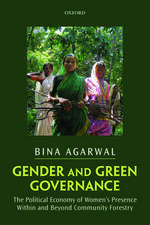Feminism and Global Chineseness: The Cultural Production of Controversial Women Authors
Autor Aijun Zhuen Limba Engleză Hardback – 31 mar 2007
Preț: 656.00 lei
Preț vechi: 713.04 lei
-8% Nou
Puncte Express: 984
Preț estimativ în valută:
125.53€ • 131.39$ • 104.48£
125.53€ • 131.39$ • 104.48£
Carte tipărită la comandă
Livrare economică 31 martie-14 aprilie
Preluare comenzi: 021 569.72.76
Specificații
ISBN-13: 9781934043127
ISBN-10: 1934043125
Pagini: 356
Dimensiuni: 152 x 229 x 24 mm
Greutate: 0.69 kg
Ediția:New.
Editura: Cambria Press
Locul publicării:United States
ISBN-10: 1934043125
Pagini: 356
Dimensiuni: 152 x 229 x 24 mm
Greutate: 0.69 kg
Ediția:New.
Editura: Cambria Press
Locul publicării:United States
Descriere
This book deconstructs the controversy of globally located Chinese women authors, including Maxine Hong Kingston (America), Wei Hui (Mainland China), Li Ang (Taiwan), and Li Bihua (Hong Kong). Zhu vividly shows how these authors are trapped in a dilemma between feminism, nationalism, and neocolonialism complicated by the powerful influences of global popular culture.













